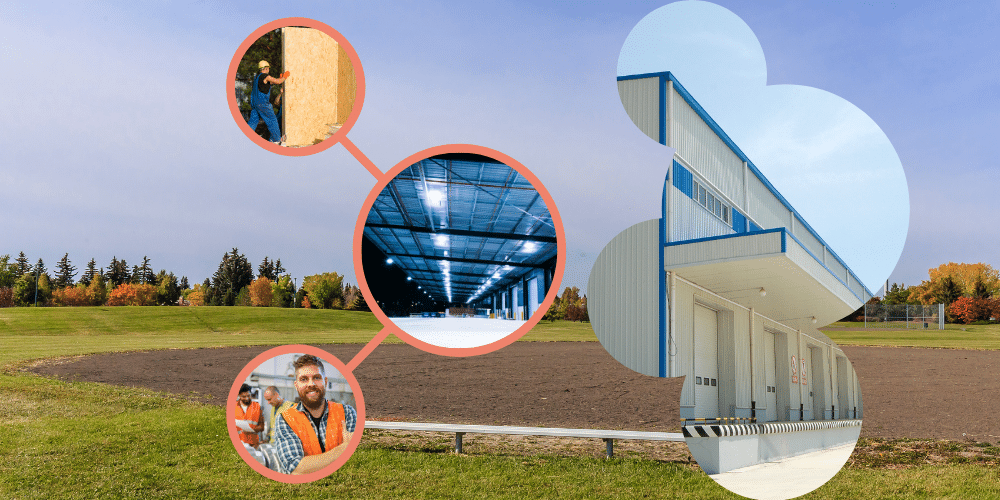In the ever-evolving field of agriculture, innovation is the key to sustainable growth. Traditional farming methods have come a long way, thanks to advancements in technology. Here’s a look at how modern technology is revolutionizing farming practices and transforming the way people store crops. From precision farming to the prefab steel warehouse, this article will dive into the exciting developments that are shaping the future of agriculture.
Precision Farming
Gone are the days when farming relied solely on guesswork and manual labor. Precision farming, also known as precision agriculture, has emerged as a game-changer in the industry. This approach involves using advanced technologies such as GPS, sensors, and data analytics to optimize various aspects of farming.
One of the significant benefits of precision farming is increased efficiency. Farmers can now precisely monitor and manage their crops, from planting to harvesting, by using real-time data. This not only saves time but also reduces the need for excessive resources like water and fertilizers, making farming more sustainable.
Automated Farm Equipment
The days of plowing fields with horses or manually tilling the soil are long gone. Today, automated farm equipment has taken over, making farming more efficient and less labor-intensive. Tractors equipped with GPS can follow pre-programmed routes with remarkable precision, ensuring that crops are planted and harvested at the optimal times.
Furthermore, drones are now used for aerial monitoring of crops. They can identify issues such as pests, diseases, or nutrient deficiencies, allowing farmers to take immediate corrective action. This not only increases crop yields but also reduces the need for harmful pesticides and herbicides.
Crop Monitoring and Management
Modern technology has made it possible for farmers to closely monitor their crops from anywhere, at any time. Weather stations, soil sensors, and remote monitoring systems provide real-time data on temperature, humidity, soil moisture, and more. Farmers can use this information to make informed decisions about irrigation, fertilization, and pest management.
Moreover, smartphone apps and software platforms allow farmers to access and analyze this data conveniently. These tools provide valuable insights into crop health and help optimize resource allocation, ultimately leading to higher yields and profitability.
Smart Irrigation Systems
Water is a precious resource, and its efficient use is crucial for sustainable agriculture. Smart irrigation systems powered by technology have become indispensable for modern farming. These systems use sensors and weather data to determine when and how much water crops need. They can adjust irrigation schedules automatically, minimizing water wastage and reducing costs.
Crop Storage Using Prefab Metal Warehouses
Efficient crop storage is essential to prevent spoilage and ensure a stable food supply. In this regard, prefab metal warehouses have emerged as a versatile and cost-effective solution. These structures are constructed off-site and then assembled at the farm, saving both time and money.
Prefab metal warehouses offer several advantages for crop storage:
Temperature Control: These warehouses can be equipped with advanced temperature control systems, ensuring that crops are stored at the optimal temperature and humidity levels. This is crucial for preserving the quality and freshness of harvested produce.
Customization: Prefab warehouses can be tailored to the specific needs of different crops. Whether you’re storing grains, fruits, vegetables, or other agricultural products, you can design the interior layout and storage systems accordingly.
Durability: Metal structures are known for their durability and longevity. A steel warehouse can withstand harsh weather conditions, protecting your valuable crops from the elements.
Conclusion
The agricultural industry is on the brink of a technological revolution. These innovations not only increase productivity but also promote sustainability by reducing resource wastage and environmental impact. As people continue to embrace these advancements, the future of agriculture looks brighter than ever, promising better food security and a more efficient use of the planet’s resources.




